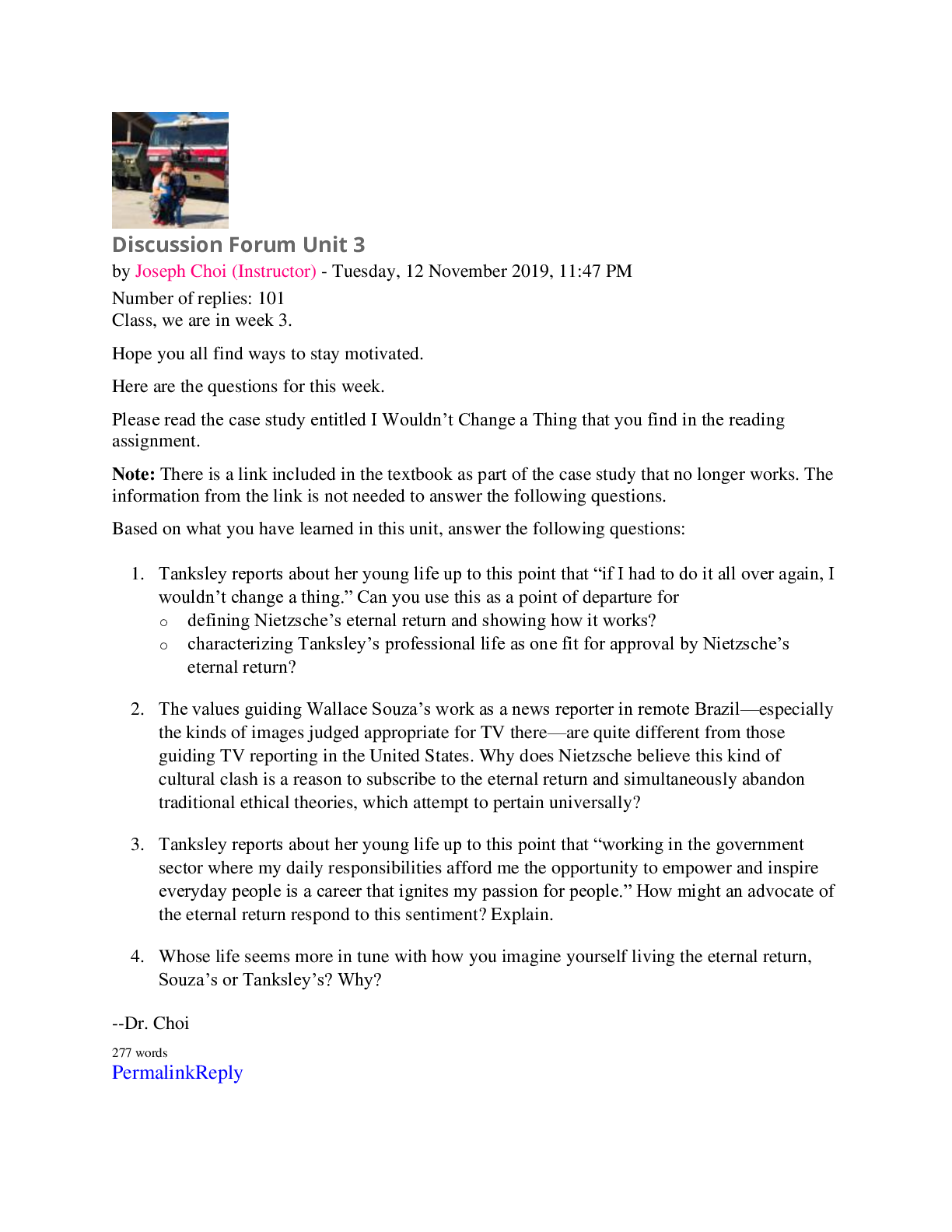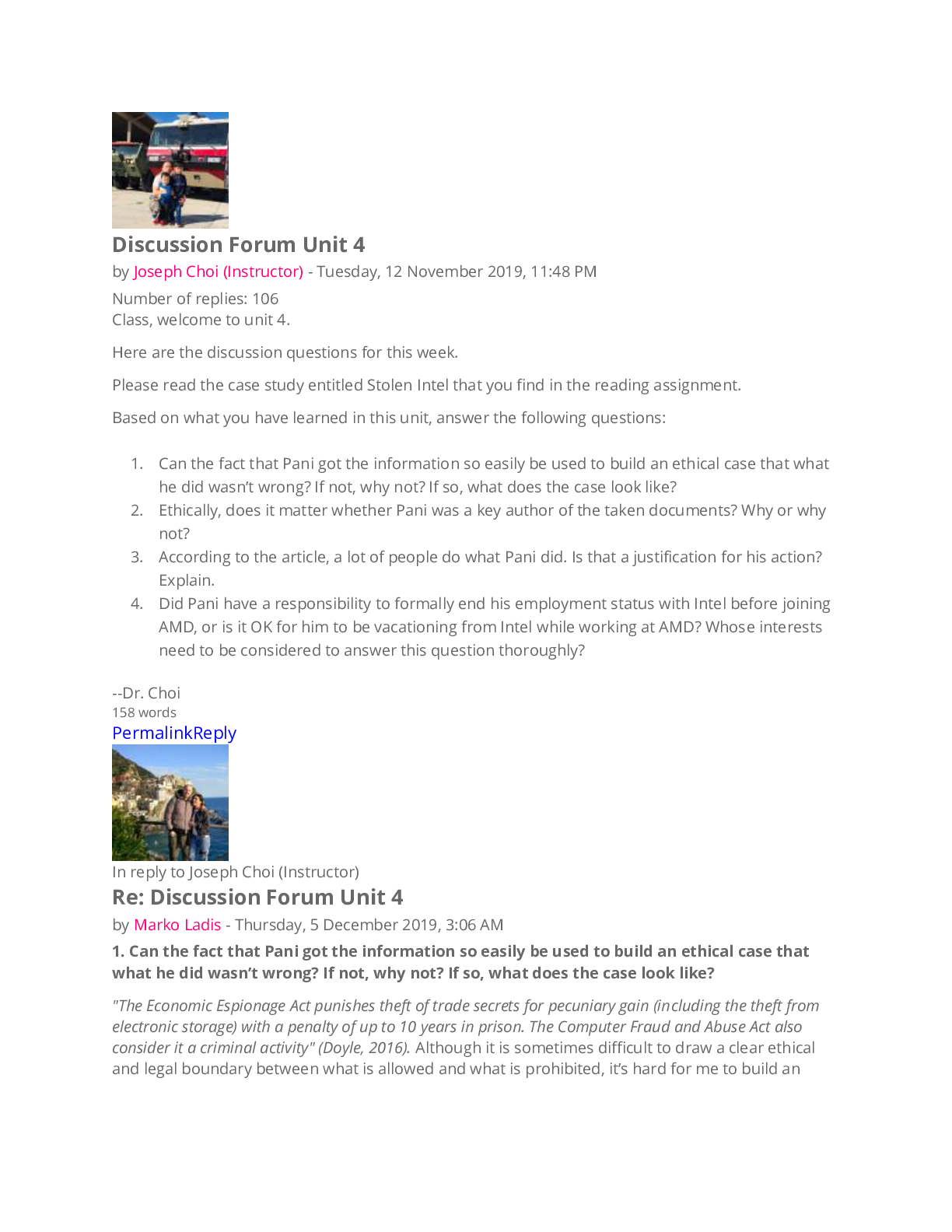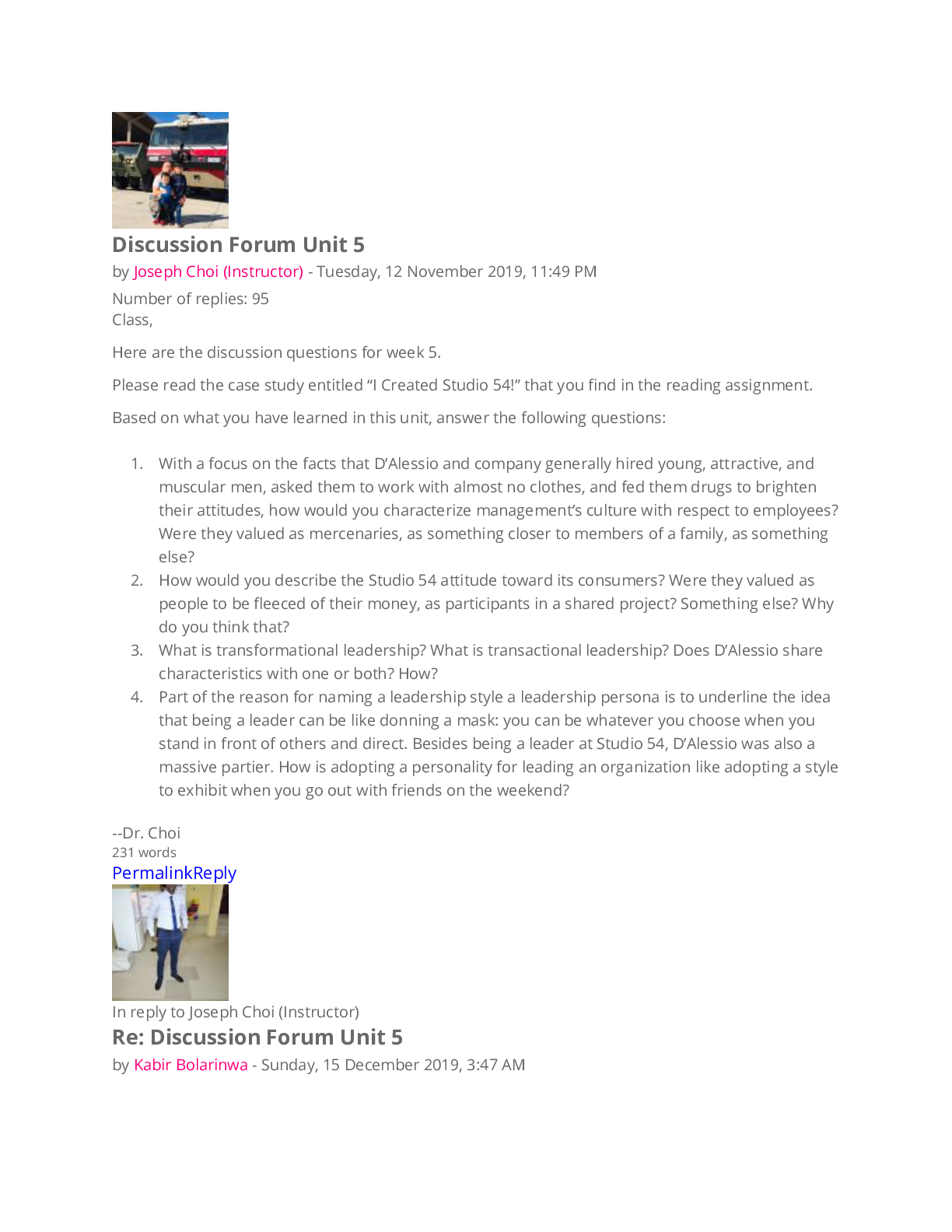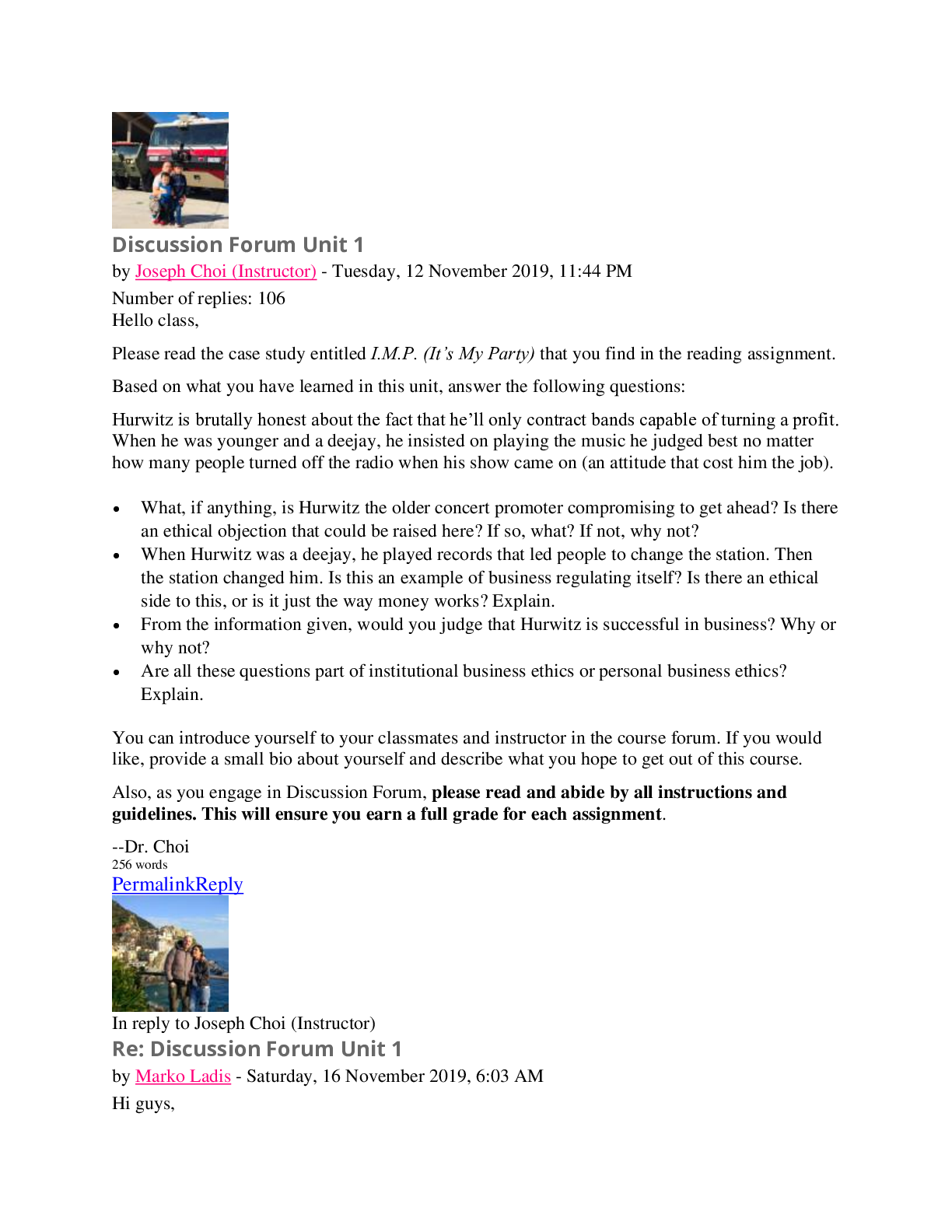Education > DISCUSSION POST > University of the PeopleEDUC 521042. EDUC 5210 Unit 3 Discussion (All)
University of the PeopleEDUC 521042. EDUC 5210 Unit 3 Discussion
Document Content and Description Below
EDUC 5210 Unit 3 Discussion According to (Bloom B, 1956) “Learning is everywhere. We can learn mental skills, develop our attitudes and acquire new physical skills as we perform the activities of ... our daily living”. Society is characterized by active interactions among people through social learning theories and processes which posits that new learning will occur from these interactions which is mainly based on the fulcrum of observing and imitating others. According to (Bandura, 1961) children observe the behaviour of others around them in various ways as actions and communication either (conscious and unconsciously). Around these are various influential models as parents, teachers and other societal members. Also, characters on television and from the books they read, friends within their peer group and teachers at school and within their environments, all serve as a source of role models whose actions and inactions impacts on their social learning. In a similar work on societal learning through imitation, Bandura, A. (1965), arrived at the following conclusions - Boys imitated more aggression than girls - Boys watching aggressive male model imitated 25.8 of the actions - Girls watching aggressive female model imitated 5.5 of the actions - Girls copied more verbal aggressive acts - Boys copied more physical aggressive acts - Children exposed to aggressive condition copied more aggressive acts. Bandura, A. (1965). Constructivism, on the other hand, is ‘an approach to learning that holds the view that people actively construct or make their own knowledge and that reality is determined by the experiences of the learner’ (Pierre Elliott Trudeau et al., 2000, p. 256). Elliot P, (2000) further posits that the theory in education recognizes the learners' understanding and knowledge, based on their own experiences before they first enter school. Both learning and thinking occur within the social milieu. As social learning may consciously and unconsciously take place (especially among children) as stated above, thinking is consciously done through the activation of once cognitive domain. A learner’s believe could greatly be influenced by his personal, social, and cultural factors. Invariably, the kind of believe a learner holds on to, coupled with his cultural background, social factors and personality can impact his learning in a myriad of ways Within the context of the quote, if a learner is ill-equipped to learn as having cognitive defect (once inability to think properly). Cognitive constructivism states knowledge is something that is actively constructed by learners based on their existing cognitive structures. Therefore, learning is relative to their stage of cognitive development. GSI Teaching and Resource Center (2015, p.5): These methods aim to assist students to assimilate new knowledge by imbibing and synthesizing existing information and enabling them to make the appropriate modifications and judgement to their existing intellectual framework to add to the new information acquired. Largely, a person’s cognitive ability should be tuned to his learning environment to enable him to adapt to and benefit from the existing learning environment. Knowledge can only exist within the human mind, and that it does not have to match any realworld reality. To this extent, a person should be of sound mind to develop and retain the existing knowledge if external information is not needed (Driscoll, 2000). This can only be achieved if [Show More]
Last updated: 2 years ago
Preview 1 out of 3 pages

Buy this document to get the full access instantly
Instant Download Access after purchase
Buy NowInstant download
We Accept:

Also available in bundle (1)
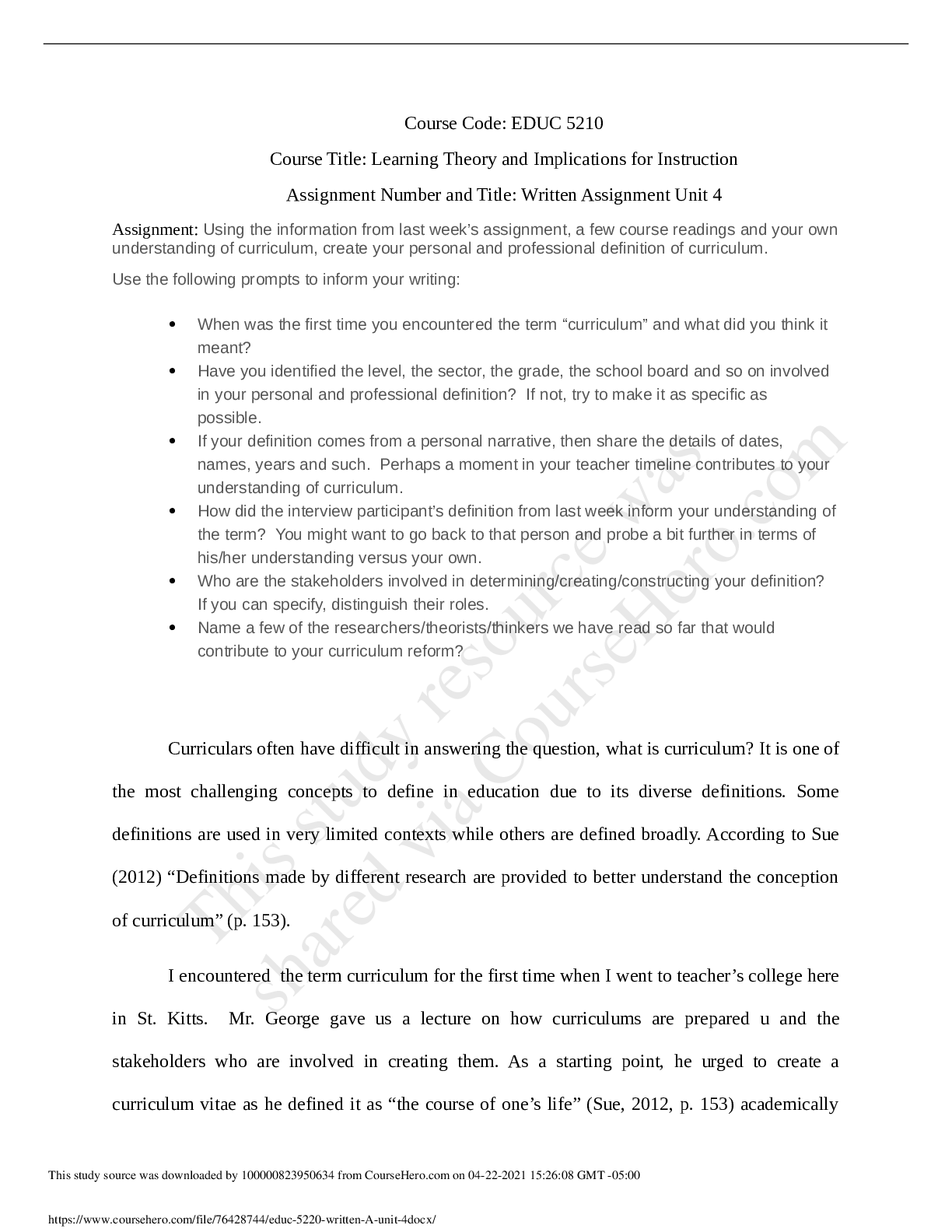
University of the PeopleEDUC 521061. EDUC
University of the PeopleEDUC 521061. EDUC
By Muchiri 4 years ago
$25
10
Reviews( 0 )
$5.00
Can't find what you want? Try our AI powered Search
Document information
Connected school, study & course
About the document
Uploaded On
Apr 22, 2021
Number of pages
3
Written in
Additional information
This document has been written for:
Uploaded
Apr 22, 2021
Downloads
0
Views
127






